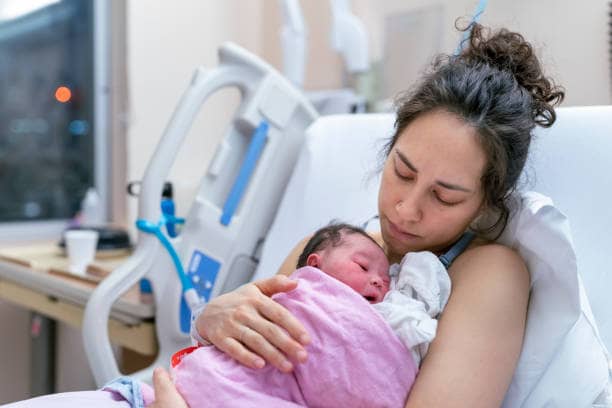Adoption Counselor: 10 Best Reasons To See One Now

Deciding to embark on an adoption journey can feel like navigating uncharted waters. It is surely exciting yet overwhelming at the same time. Seeing an adoption counselor can be the game-changer that helps you navigate this complex process without fear.
Whether you are just considering adoption or you are already deep in the paperwork, getting the right support provides you with the most important emotional guidance and expertise that can transform your experience. Many families overlook counseling services, and still wish they had found help sooner.
In this actionable guide, I will show you ten important reasons why adoption counseling is important and why you must see an adoption counselor now to help create a healthy, successful adoption story for everyone involved. Let me show you how the right support can be the difference between thriving on your part for building your forever family and simply surviving.
Let’s dive in.
What is Adoption Counseling?
Adoption counseling is a unique mental health and support service that is designed specifically for those going through adoption, like adoptive parents, birth parents, and adoptees. This comprises the social workers, licensed therapists, and psychologists with specialized training in adoption issues, who are all vital for adoption purposes.
Unlike general therapy, adoption counseling with the supervision of an adoption counselor helps those in adoption triads to address the unique challenges and emotions that come throughout the adoption lifecycle.
These services can start with an adoption counselor, before you have even applied (pre-adoption counseling), continue through the placement process, and can last for years afterwards (post-adoption support).
What makes an adoption counselor indispensable and unique is their deep understanding of attachment theory, trauma-informed care, and the emotional landscape of every adoption journey.
10 Reasons To See An Adoption Counselor:
1. Navigating Complex Emotions:
Adoption journey is always full of a rollercoaster of emotions, from hope mixed with fear, excitement coupled with anxiety, and most times grief alongside joy. In all these, adoption counseling will provide a safe environment for you to process these complex feelings.
As an adoptive family, any adoption counselor who specializes in adoptive family therapy will help you normalize these emotions and still provide you with concrete coping strategies. Many adoptive parents say they feel guilty about their struggles and wonder if their ambivalence means they are not cut out for adoption.
An adoption therapist helps you validate these responses while also building emotional resilience for the journey ahead.
2. Understanding the Legal Landscape Of Adoption:
Every country and state has different adoption laws, which create a maze of requirements that can be very overwhelming. However, through adoption counseling, you will gain an advocate who is ready to explain these complexities to you in understandable terms.
While an adoption counselor can’t replace attorneys, they provide important context for legal processes. Your counselor can give you guidelines that will make your home studies, court appearance, and documentation requirements easier, which increases your confidence during these crucial steps.
This preparation often makes the difference between approaching adoption with informed readiness and feeling blindsided by adoption requirements.
3. Building Realistic Expectations:
Unrealistic expectations can harm your adoption journey faster than anything else. Adoption Counseling can help you calibrate your timeline expectations, emotional readiness, and financial planning. Every counselor draws their experiences from thousands of families they have worked with and uses them to help you set boundaries and get ready for potential challenges.
Understanding all about adoption waiting time, likely disruptions, and common roadblocks helps to protect your mental health throughout the adoption process. So, when you are sure of what’s normal and what’s cause for concern, you are good at navigating setbacks with greater resilience.
4. Strengthening Family Bonds:
The adoption journey does not end when you bring your new baby into your house; it affects everyone in your household, too. Adoption, therefore, includes preparing siblings, extended family, and grandparents for the transition.
Adoption counselor will make age-appropriate resources available to help existing children understand what adoption truly means, as well as address your concerns before problems arise.
Additionally, therapists who are trained in attachment counseling for adoptive families can provide you with practical bonding strategies that recognize the uniqueness of adoptive relationships.
These described techniques build a secure foundation for secure attachments that will help the child’s development in the future.
5. Addressing Birth Family Relationships:
Whether you choose an open adoption, semi-open, or closed adoption, a relationship with the birth family requires thorough investigation. Adoption counseling will provide you with a framework for healthy communication with birth parents, set appropriate boundaries, and honor your child’s origin story.
An adoption counselor will show you how to manage complex emotions about these relationships, including anxiety, gratitude, jealousy, and guilt. With the professional guidance you will get from a counselor, it will be easier for you to create relationships that respect everyone’s needs and still prioritize your child’s emotional well-being through birth parents counseling resources.
6. Cultural Competency Support:
If you decide to go for either transracial adoption or international adoption, you will need professional guidance. The reason is that cultural competency doesn’t happen overnight, and ethical adoption practices require your attention to the child’s cultural heritage.
Adoption professionals will provide you with good resources, community groups, and educational opportunities that will support your child’s identity development.
Your adoption counseling provider is there to help you discover and address your own biases, as well as create a home environment that recognizes the adoptee’s background.
This proactive approach makes it easy for you to prevent identity confusion and cultural disconnection as your child begins to grow.
7. Managing Post-Adoption Depression:
According to research, post-adoption depression affects close to 18-26% of adoptive parents and remains frequent and unrecognized. Through post-adoption support, you will learn how to identify warning signs and implement self-care strategies that will reduce the risk of depression.
Once you experience any symptoms, early intervention through adoption counseling can prevent it from escalating and still protect your family bonding.
An adoption counselor will aid you in normalizing these experiences as they provide you with concrete coping strategies, medication referrals at the appropriate time, and ongoing support during this overwhelming transition period.
With professional support and guidance, this temporary adoption challenge doesn’t have to disturb your adoption experiences.
8. Creating Support Networks:
One of the things that makes the adoption journey look complicated is isolation, but connection will provide you with resilience. Adoption support services are all about connecting you with parent groups, online communities, and other resources required for your situation.
Your adoption counselor is your knowledgeable guide to adoption communities, helping you find your tribe. Connecting with these communities is good, as they provide you with practical advice, emotional understanding, and best friendship with people who truly “get it.”
The value of peer support you’ll get complements professional adoption counseling by creating all the support systems you need to address different needs throughout your adoption journey.
9. Developing Parenting Strategies:
Sometimes, the traditional parenting approaches don’t work effectively when addressing the unique needs of adoption, particularly when it entails trauma or multiple placements. Adoptive family therapy provides you with evidence-based strategies that will work for these experiences, which promote healing and secure attachment.
Counselors are very good at therapeutic parenting techniques, so they will apply them to you to help children with trust-related issues, sensory processing differences, or attachment issues. These profound approaches give you the confidence you need to address behaviors others won’t, reduce family stress, and promote healthy development.
10. Long-term Family Success Planning:
Adoption counseling is not just good for the initial transition; it also provides support throughout your family’s developmental stages. As your children begin to grow, expect new questions about identity, birth families, and adoption stories.
Don’t worry, professional guidance will help you navigate all these age-appropriate conversations and other major life transitions. As you establish a relationship with an adoption professional, you have the best trusted adoption resource to fall back on when you envisage new challenges.
This proactive approach will stop small issues from escalating to major problems and support your family’s ongoing changes and resilience.
How to Find the Right Adoption Counseling Services:

Now that you have learned the benefits of counseling, let me show you how to locate the right match for your adoption counseling. To begin with, look for professionals with specific adoption training. For example, those who have certification from the American Academy of Adoption and Assisted Reproduction Attorneys or have specialized post-graduate education in adoption issues.
When interviewing your chosen counselor, ask them about the experiences they have with situations similar to yours, their approach to adopting ethics, and how they plan to support you during a crisis. Verify whether they accept insurance and find out their fee structure, as costs for specialized adoption can differ widely.
Consider whether in-person or virtual sessions, individual or group formats, are the best for you. Additionally, consider the counselor’s approach to adding children to the therapeutic process. Many families benefit from a combination of services that work as their needs change throughout the adoption lifecycle.
Conclusion:
There’s no doubt that the adoption journey will transform your family, but you are bound to face some challenges too. Adoption counseling will provide you with essential guidance that will normalize the complex emotions, practical challenges, and unique joys that always come with the path to parenthood.
By working with a professional, you will build the best foundation for family success that benefits everyone involved in your adoption journey. Have in mind that seeking support is not a sign of weakness but a commitment to providing your family with every advantage they need.
The right adoption counseling provider will make the journey much easier and help you create a loving and secure family that every child deserves. Have you worked with any adoption counselors in your adoption journey before? How helpful were they, and what were your experiences throughout the journey?
Please share your thoughts using the comment section or reach out to discuss how our recommended resources can be of help in your situation.
I am your In-house counselor, Murphyaik. See you at the top.



